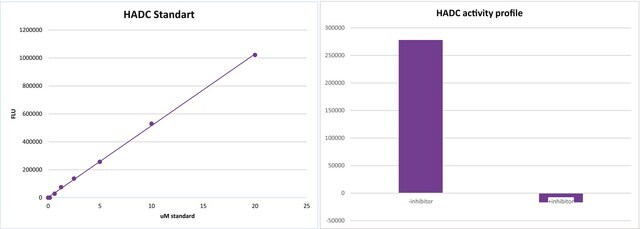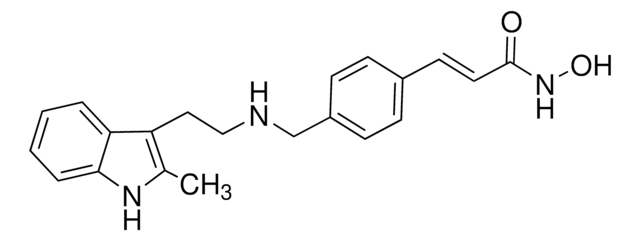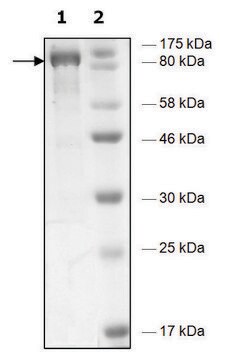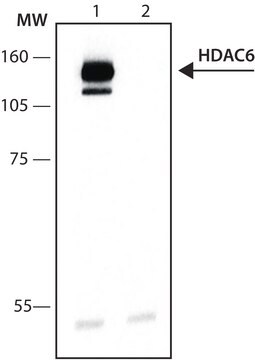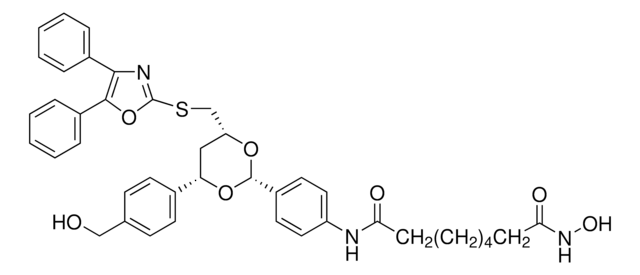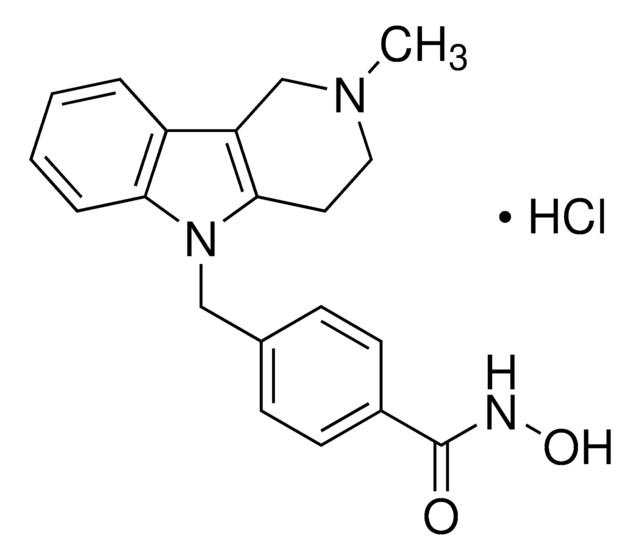SRP0108
HDAC-6 human
recombinant, expressed in baculovirus infected insect cells, ≥80% (SDS-PAGE)
Synonym(s):
HD6, Histone deacetylase 6, JM21
About This Item
Recommended Products
biological source
human
recombinant
expressed in baculovirus infected insect cells
Assay
≥80% (SDS-PAGE)
form
aqueous solution
mol wt
159 kDa
packaging
pkg of 50 μg
NCBI accession no.
UniProt accession no.
shipped in
dry ice
storage temp.
−70°C
Gene Information
human ... HDAC6(10013)
General description
Application
Biochem/physiol Actions
Unit Definition
Physical form
Preparation Note
Storage Class Code
12 - Non Combustible Liquids
WGK
WGK 3
Flash Point(F)
Not applicable
Flash Point(C)
Not applicable
Regulatory Listings
Regulatory Listings are mainly provided for chemical products. Only limited information can be provided here for non-chemical products. No entry means none of the components are listed. It is the user’s obligation to ensure the safe and legal use of the product.
Cartagena Act
Cartagena Act Listed
JAN Code
SRP0108-50UG:
Certificates of Analysis (COA)
Search for Certificates of Analysis (COA) by entering the products Lot/Batch Number. Lot and Batch Numbers can be found on a product’s label following the words ‘Lot’ or ‘Batch’.
Already Own This Product?
Find documentation for the products that you have recently purchased in the Document Library.
Articles
Epigenetic modifications are thought to occur through two key interconnected processes—DNA methylation and the covalent modification of histones.
Our team of scientists has experience in all areas of research including Life Science, Material Science, Chemical Synthesis, Chromatography, Analytical and many others.
Contact Technical Service

